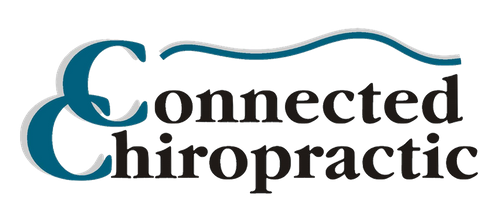
Sleep. We all do it, try to do it, or wish we could do it. What makes falling asleep and staying that way so easy for some people yet so elusive for others? Before you reach for prescription sleep aids that may do more harm than good, let’s look at some natural ways to get those zzzzzz’s!
Understanding Sleep (And How To Get More Of It!)
Get On The Clock
One of the best things you can do for yourself is to establish a sleeping schedule. Most adults require six-to-eight hours of sleep per night and our wake up time is usually determined by our work schedule, so that’s a good place to start. Determine what time you need to awaken in order to accomplish everything on your early morning list and still make it to work on time. Count back six-to-eight hours (more or less according to what your body tells you) and make a firm agreement with yourself to be in bed by that time. Make a list of all the things you need to do before bed and time them out. If necessary, set an alarm to start your wind-down process.
Hint: Try and stick to your sleep schedule as much as possible, even on weekends and other days off. We know, it’s a slice of heaven to sleep in on Saturday, but you can reward yourself with an afternoon nap if you get up and go on schedule during the weekend.
Cut The Caffeine
If you do depend on caffeinated drinks to make it through the day, try a little less and see how it feels. Listen to your body. You probably don’t need as much (if any) as you think. And draw a line in the sand for that last cup of coffee for the day. 3 pm? 4 pm? Let your body tell you when the cut off is.
Hint: If you are waking up in the middle of the night, even after falling asleep successfully, you might need to stop the caffeine a little earlier.
Chill Out
According to Sleep.org, the optimal room temperature for sleep is 60-67 degrees Fahrenheit. Our bodies attempt to induce sleep by lowering our internal temperature. Help a body out by setting the thermostat in your bedroom lower so this natural process happens more quickly. The reverse is true for wakeup time. If you have a programmable thermostat, set it to warm up a while before your alarm is set to go off. As a bonus, you won’t be so chilly trying to navigate to the coffee pot and the shower!
Take It Off. Take It All Off.
Pajamas, nightgowns, and other bedclothes are for lounging, looking cool, and matching in family photos during the holidays. In bed, they become tangled, hot, messy straight jackets that make us uncomfortable and are just one more thing to interrupt a good night’s sleep.
Experts suggest slipping under the covers with as little clothing on as possible — even when it’s cold. Your body knows what to do to regulate your temperature. Resist the urge to layer up and while you’re at it, make sure you can easily adjust your cover configuration without completely waking up. Sometimes, all it takes is being able to get one foot out from under the covers.
Have A Bite
Ever wake up hungry in the middle of the night and couldn’t go back to sleep? Plan a bedtime snack to quiet your stomach and let your body concentrate on more important matters like cellular repair and problem solving, aka dreaming. Choose something small, soothing, and easy to digest, preferably with some natural carbs and protein to cause a small spike in blood sugar that will promote insulin secretion, which, in turn, can help tryptophan get to your brain and put you to sleep.
Hint: Think cottage cheese with a little fruit, apple slices with almond butter, or a hard boiled egg and a couple of crackers. Some sleep experts even recommend keeping a glass of water and a small snack on your nightstand just in case thirst and/or hunger strike in the middle of the night!
Eliminate Electronics
It’s best if you can detach yourself from all screens and start winding down about an hour before you hit the sack. Learn to live without that digital clock glowing from across the room if possible. The more complete the darkness in your bedroom, the faster your brain will shut your body down for a good night’s sleep. If you must have your phone on and in your room, try putting it in the drawer or your nightstand and make sure your alarm vibrates as well as plays a lovely wake up tune. Smartphones are equipped with sleep mode and programmable “do not disturb” features that still allow emergency calls and alarms to get your attention. Use them.
Abolish Aches And Pains
Don’t let that knee, neck, shoulder, or hip rob you of a good night’s sleep. See your chiropractor in Johnstown for adjustments on a regular basis and let them know what’s keeping you awake. Dr. Brad would be happy to discuss the correct sleeping positions, recommend pillows and essential oils, and perform proper, gentle adjustments that will give your body its best shot at doing its job — healing. Give Connected Chiropractic a call and get on the schedule for a good night’s sleep. Your body deserves it! While you’re there, discover the benefits of massage therapy for better sleep!
